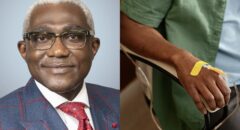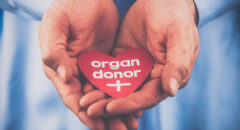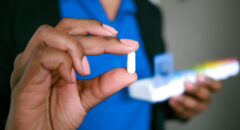
(BlackDoctor.org) — Food is not the only concern for people newly diagnosed with type 2 diabetes. Many are curious about alcohol. Cocktails don’t have to be off-limits if your diabetes is controlled, you’re otherwise healthy, and you know how to handle your blood sugar when it veers off path.
You should ask yourself these three questions before you consider drinking alcohol:
1. Is your diabetes under control?
2. Do you have any other illnesses that could be made worse by drinking alcohol?
3. Do you know how to manage your blood sugar if it dips too low or rises too high?
If your diabetes is not controlled; if other illnesses affect your liver, your heart or your nerves; or if you don’t know what to do if your blood sugar fluctuates too much, alcohol may cause some significant side effects. As a rule of thumb, if you didn’t drink alcohol before you were diagnosed with diabetes, you probably shouldn’t start now.
Your Physician’s Input
People with type 2 diabetes should talk with their physician about how often—and how much—they drink. If you’re healthy and your doctor doesn’t see any reason why you can’t drink alcohol, as always, moderation is the key. Most physicians recommend a limit of one alcoholic drink equivalent per woman and two per man, if you are already a drinker. A “drink equivalent” is one beer, six ounces of wine, or 1½ ounces of hard liquor.
Why the Fuss About Alcohol?
Your liver plays a role in balancing your blood sugar-to-insulin ratio when you’re not eating or drinking. Alcohol slows down your liver’s ability to produce sugar during the fasting state or overnight, which is when our sugar levels drop to the lowest level. If you drink alcohol before you’ve eaten, your blood glucose level will start dropping, and that’s a problem. The liver will be unable to release the necessary glucose into the bloodstream to correct it because it has to focus on clearing out the alcohol first. So, before having that drink, prepare for it. Have a balanced meal or a snack that has protein, carbohydrates and fats in it beforehand. You’ll need the food to provide sugar to your body, to counteract the alcohol’s effects.
Precautions
If you are going to have a drink or two, there are some precautions you should take to reduce the risk of low blood sugar, also called hypoglycemia. Aside from eating, they include:
• Take your glucometer with you so you can monitor your blood sugar levels.
• Be sure your companions know how to recognize the signs and symptoms of low blood sugar and what to do if they see them.
• Because glucagon, an emergency shot some diabetics carry to inject if their sugar gets too low, doesn’t work if you have alcohol in your blood, make sure someone knows to call 9-1-1 if you appear in distress or become unconscious.
• Wear a medical-alert bracelet or some other type of identification that notifies emergency personnel of your diabetes.
Having diabetes doesn’t mean you have to give up the time-honored ritual of having a drink occasionally. But it does mean you need to prepare and be careful.








